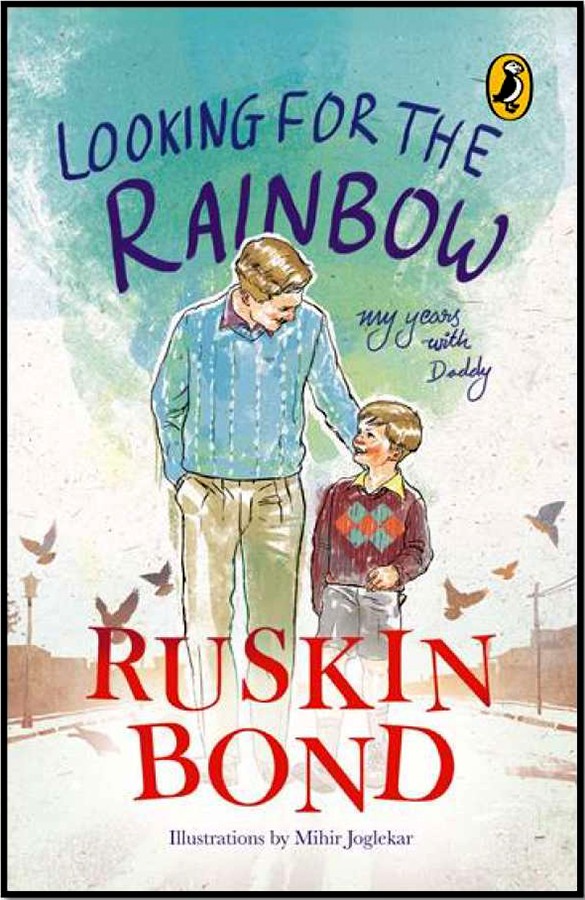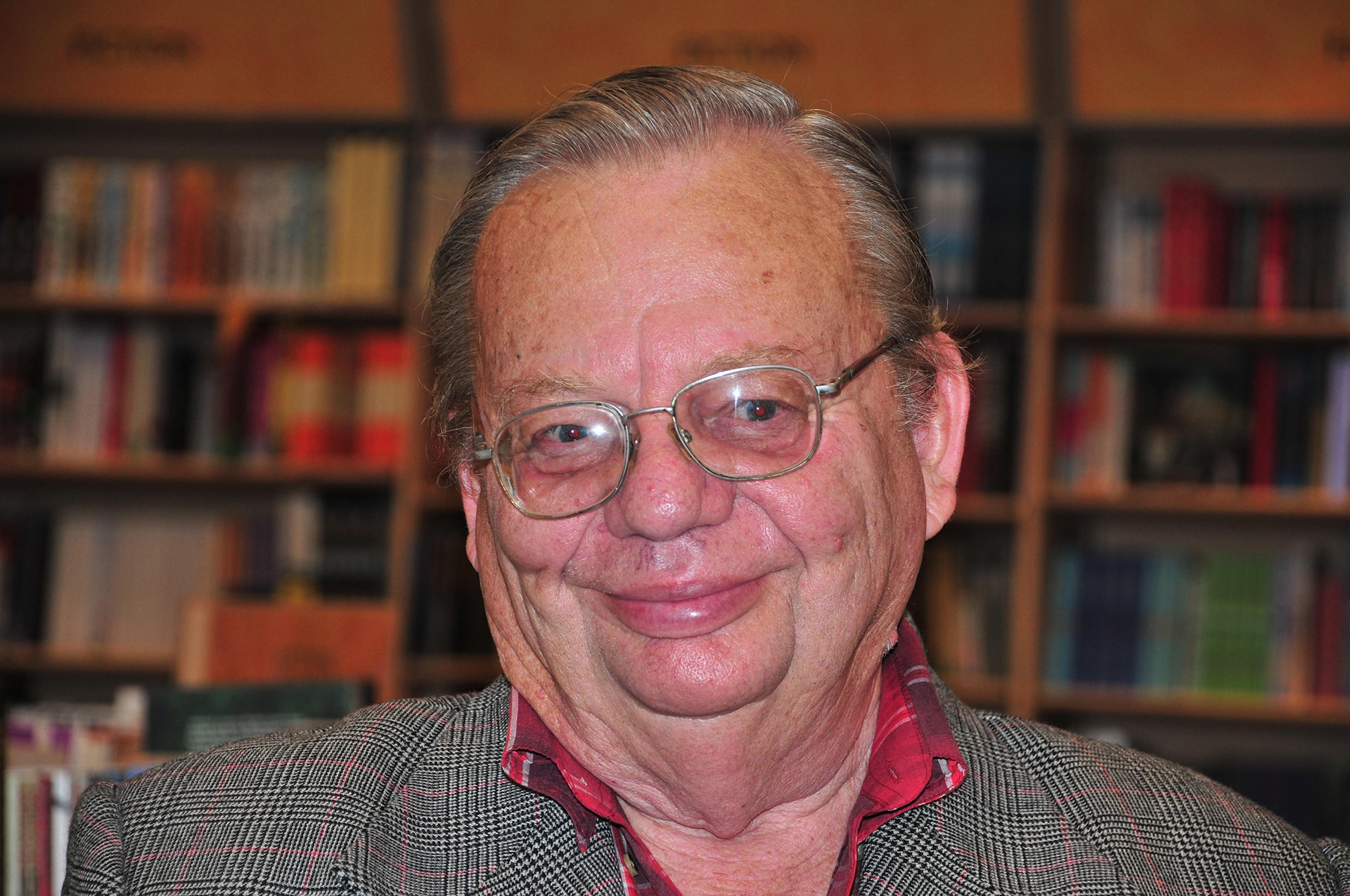When you open a new book, you unfurl a smell of ink and paper, and the promise of a new story. When it’s a book by Ruskin Bond, another aroma commingles with that glorious scent. That of crisp mountain air, straight from Landour. The crackle of the page sounds like the gentle swoosh of autumn leaves as they whirl down onto a leafy bed. Mr. Bond’s stories are replete with the call of the cicadas, the chirps of the mountain birds in the distance, the disappearing tail of a leopard around the corner. The writer on the hill has always held that ability to transport his readers to his beloved home, inviting them to visit briefly with his neighbours – both people and animals, all with the magical tapestry of his words.
Now as he turns 83, Mr. Bond’s writing continues to hold sway over both children and adults. He is looking forward to the launch of his new book Looking for the Rainbow: My Years with Daddy (Puffin Books, Penguin Random House, India), a memoir about the two wonderful years he spent with his father at the age of eight. He writes about Delhi and Simla, and about that special time that he was able to spend with his father. “It has been with me all my life,” said Mr. Bond, over a phone call. “I felt I had to talk about it. And there it is! I have paid tribute to him in the form of a special book.”
Of course, woven into the story is also one of the themes closest to his heart – nature. One time, a centipede dropped out from one of his shoes, another time, a harmless little skink. One day, he observed a long, black snake slithering gracefully across their garden, and later, he writes – “We were inclined to take nature for granted in those days. We had our forests and lakes and unpolluted rivers. There were still many birds and animals to be seen. Wild flowers covered the hill slopes. Crickets sang in the grass.”
Now sitting in his home in Landour, Mr. Bond rues the way things have degraded, even in his nook of the country. “For the last 50 years, my whole life has revolved around nature and the natural world,” he said. “Having lived in a hill station for so long, I can see the changes that are taking place. Certain plants and flowers don’t come up anymore – they are frightened off. There are these birds you don’t see commonly now. Crickets and cicadas used to make noise in the trees. I haven’t heard them at all recently.”
In Ruskin Bond’s Book of Nature (Penguin Viking), he writes, “Wherever I have lived, be it city or small town or hill station, I have always managed to find some corner where birds sing, or flowers grow, or small creatures survive… Live close to nature and you will never feel lonely. Don’t drive those sparrows out of your veranda; they won’t hack into your computer.” It’s the small things that Mr. Bond remembers and appreciates. Like a “Firefly in My Room”, in Book of Verse (Penguin India), “lighting up little spaces… A friendly presence dispelling the settled gloom of an unhappy day”; or “The Snail” who he observes and writes, “I salute you, Snail. Somehow, you’ve made me feel quite small.”
All of this continues to inspire him. “I have been writing from one small room for a good thirty years,” said the writer. “When I feel like it, I sit by the window – I gaze into the clouds. I put down what I see. If a ladybird comes onto the desk, I write about it.” Like in Friends in Wild Places (Speaking Tiger), an emerald green praying mantis sitting on Mr. Bond’s writing pad makes an appearance. “Later,” he writes, “I found him examining the binding of Whitman’s Leaves of Grass; perhaps he had found a succulent bookworm.”
We asked Mr. Bond about the view from his window that continues to enthuse him. He said, “Right now, I can see a couple of mynah birds fighting each other on top of a telegraph pole. I like mynahs, they are constantly doing something or the other. Then there’s dust, a lot of it from Delhi, doing its best to come up here. There’re a couple of cars rushing past, honking away. Some workers down the road, building something. We don’t stop building nowadays. We don’t give up.”


